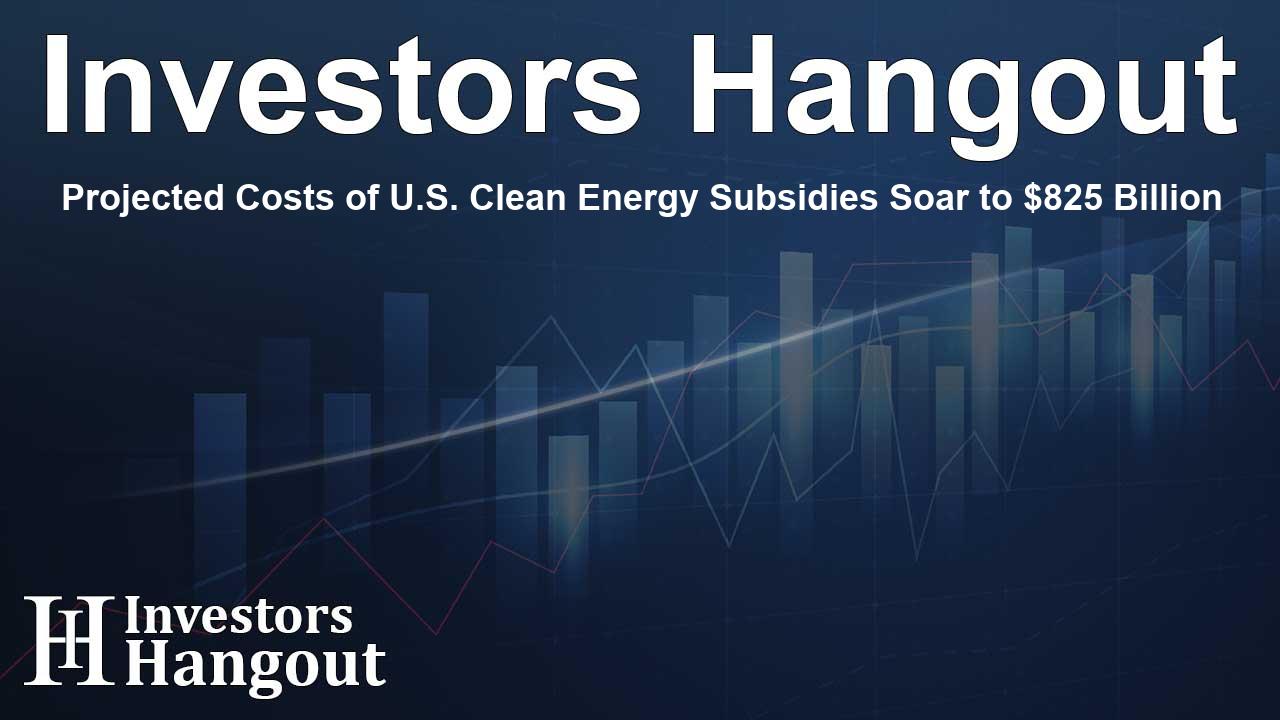Projected Costs of U.S. Clean Energy Subsidies Soar to $825 Billion

Understanding the Surge in Clean Energy Tax Subsidies Costs
As the landscape of clean energy evolves, recent developments have shown that the financial implications of these initiatives are substantial. According to the Congressional Budget Office (CBO), the projected cost of U.S. clean energy tax subsidies under the Inflation Reduction Act, championed by President Joe Biden, will amount to an astonishing $825 billion over the next decade. This revelation has raised eyebrows as it far exceeds the original estimate of $270 billion for the same period.
Factors Influencing Higher Cost Estimates
During a press briefing, CBO director Philip Swagel shed light on the reasons behind this significant increase in projected expenses. A pivotal factor is the different budget window applied to current estimates, which spans from 2025 to 2035. In contrast, the initial forecasts were made with a shorter view extending from 2022 to 2031, highlighting the fluid nature of budgetary expectations in the realm of fiscal policy.
The Impact of Updated Rules on Subsidy Uptake
In addition to the extended budget window, changes in the rules governing these subsidies have also contributed to the financial surge. Specifically, a rise in the adoption of electric vehicle subsidies has been tied to improvements in leasing options and the introduction of stricter tailpipe emissions standards for traditional vehicles. These adjustments incentivize more consumers to take advantage of the available subsidies, consequently driving the overall costs higher.
What This Means for U.S. Energy Policy
The implications of these increased costs extend beyond mere numbers on a balance sheet. They serve as a reminder of the complexities and challenges associated with transitioning to a greener energy sector. Understanding the financial dynamics and making informed policy decisions will be crucial for balancing environmental goals with fiscal responsibility.
Long-term Vision for Clean Energy Investments
As the U.S. government continues to prioritize clean energy initiatives, discussions must delve into sustainable funding strategies to manage these substantial expenses. Policymakers need to consider both the immediate financial implications and the long-term benefits of investing in clean energy technology and infrastructure.
Frequently Asked Questions
What are clean energy tax subsidies?
Clean energy tax subsidies are financial incentives provided by the government to encourage the adoption of renewable energy technologies and reduce reliance on fossil fuels.
Who approved the Inflation Reduction Act?
The Inflation Reduction Act was approved under the administration of President Joe Biden, aimed at bolstering clean energy investments across the country.
Why did the cost estimates increase so dramatically?
The dramatic increase is attributed to a longer budget projection period, changes in subsidy rules that led to increased adoption of electric vehicles, and subsequent adjustments in budgetary assessments.
How will these subsidies impact the U.S. budget?
The increase in costs is expected to add significantly to the U.S. budget deficits, creating ongoing discussions about fiscal management and future expenditures.
What role do electric vehicles play in these subsidies?
Electric vehicles significantly influence these subsidies as new regulations and incentives aim to boost their adoption, which in turn drives up the budgetary allocations for these programs.
About The Author
Contact Dylan Bailey privately here. Or send an email with ATTN: Dylan Bailey as the subject to contact@investorshangout.com.
About Investors Hangout
Investors Hangout is a leading online stock forum for financial discussion and learning, offering a wide range of free tools and resources. It draws in traders of all levels, who exchange market knowledge, investigate trading tactics, and keep an eye on industry developments in real time. Featuring financial articles, stock message boards, quotes, charts, company profiles, and live news updates. Through cooperative learning and a wealth of informational resources, it helps users from novices creating their first portfolios to experts honing their techniques. Join Investors Hangout today: https://investorshangout.com/
The content of this article is based on factual, publicly available information and does not represent legal, financial, or investment advice. Investors Hangout does not offer financial advice, and the author is not a licensed financial advisor. Consult a qualified advisor before making any financial or investment decisions based on this article. This article should not be considered advice to purchase, sell, or hold any securities or other investments. If any of the material provided here is inaccurate, please contact us for corrections.
